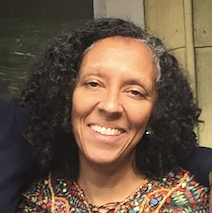May 19, 2014
This might be the most important seven minutes of your week. For, me, it was one of those beautiful moments when understanding history – a hidden story that isn’t widely told – helped me think much more clearly about an important contemporary issue. Aviva Chomsky, author of “Undocumented: How Immigration Became Illegal,” explains how recently the concept of “illegal immigration” was developed and how it was developed specifically as a way to discriminate against Mexican workers in the U.S. At the time, visas were not needed to enter the country; people from Mexico, many of whom returned seasonally, were considered workers not immigrants; people from China and other Asian countries were not allowed to enter the U.S. at all; and only people from Europe were considered “immigrants.” And, preceding all of that history of course, there were a couple hundred years of European settler/ immigrants who carried no documentation and were not considered “illegal.”
Link to audio
May 12, 2014
Mellody Hobson, President of Ariel Investments and chair of the board for DreamWorks Animation challenges us to be “color brave” instead of “color blind.” Here are a few snippets from her TED talk. Well worth listening to in its entirety.
“[R]esearchers have coined this term “color blindness” to describe a learned behavior where we pretend that we don’t notice race. If you happen to be surrounded by a bunch of people who look like you, that’s purely accidental. Now, color blindness, in my view, doesn’t mean that there’s no racial discrimination, and there’s fairness. It doesn’t mean that at all. It doesn’t ensure it. In my view, color blindness is very dangerous because it means we’re ignoring the problem… this subject matter can be hard, awkward, uncomfortable — but that’s kind of the point… If we can learn to deal with our discomfort, and just relax into it, we’ll have a better life.
“So I think it’s time for us to be comfortable with the uncomfortable conversation about race: black, white, Asian, Hispanic, male, female, all of us, if we truly believe in equal rights and equal opportunity in America, I think we have to have real conversations about this issue. We cannot afford to be color blind. We have to be color brave. We have to be willing, as teachers and parents and entrepreneurs and scientists, we have to be willing to have proactive conversations about race with honesty and understanding and courage, not because it’s the right thing to do, but because it’s the smart thing to do, because our businesses and our products and our science, our research, all of that will be better with greater diversity…
“I’m actually asking you to do something really simple: observe your environment, at work, at school, at home. I’m asking you to look at the people around you purposefully and intentionally. Invite people into your life who don’t look like you, don’t think like you, don’t act like you, don’t come from where you come from, and you might find that they will challenge your assumptions and make you grow as a person…
“I’m asking you to show courage. I’m asking you to be bold. As business leaders, I’m asking you not to leave anything on the table. As citizens, I’m asking you not to leave any child behind. I’m asking you not to be color blind, but to be color brave, so that every child knows that their future matters and their dreams are possible.”
May 2, 2014
“Our minds automatically justify our decisions, blinding us to the true source, or beliefs, behind our decisions. Ultimately, we believe our decisions are consistent with our conscious beliefs, when in fact, our unconscious is running the show.”Howard Ross, Kirwin Institute, 2008
 Read More
Read More
May 1, 2014
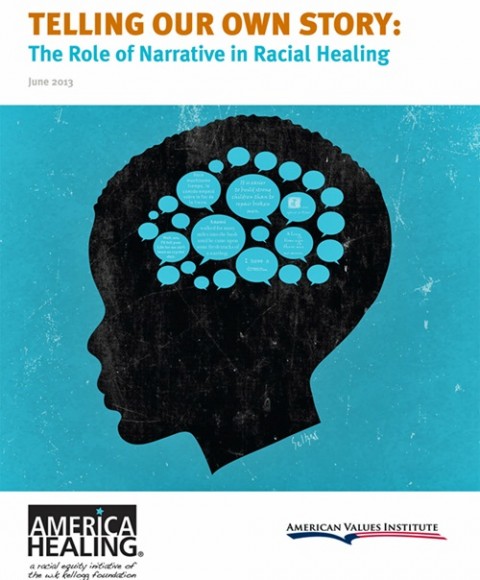
Last week, Curtis Ogden wrote about the power of narrative to build engagement and shape the action in networks. We’ve also been taking a deep dive into the role of narrative in racial healing. That is, focusing on the need to expose and transform the deeply embedded narratives about race that allow racism to persist through unconscious bias, individual behaviors and micro-aggressions, institutional practices, and structural arrangements in this society. The report “Telling our Own Story” describes the ways in which narratives about race have shaped the U.S. culture and values, and laid the foundation for social structures based on false stories about the value of people based on a racial hierarchy. Here are a few opening ideas. We hope you will read the full report. Read More
April 21, 2014
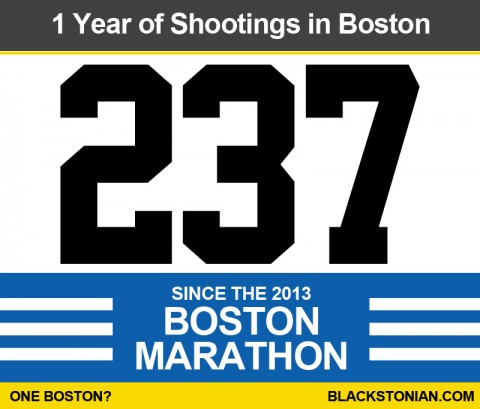
“Is there really One Boston? Boston Strong? Is the violence that occurs on a day-to-day basis acceptable? Is the reaction and response to violence different depending on where it happens or whom it happens to? Have we become desensitized to ‘regular violence’?” These are the questions the Blackstonian newspaper raises in a report detailing the 237 shootings in Boston since the Marathon bombings. Read More
April 7, 2014
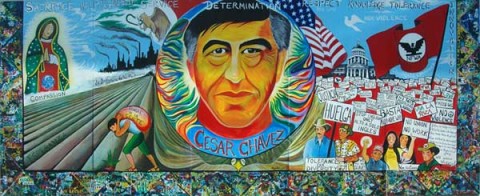
I saw the new biopic about César Chávez this weekend. Criticisms notwithstanding, I think there is a lot to celebrate and a lot to learn from this film. Here are a few things that struck me.
While details apparently were missing, this was the first I had heard of the solidarity between Filipino and Chicano farm workers. It was a clear example of how race has been used to keep the class system in place in this country.
While the role of women in the movement was not fully explored, I think Helen Fabela Chávez made one of the most important statements in the film as she and César discussed moving from LA to Delano to organize workers from within their ranks. “We can’t ask the people to do anything we are not willing to do.” There is no power like the power of personal experience and personal sacrifice to make change happen.
Personal sacrifice for la causa was a consistent theme. We get glimpses of the impact of the move from LA to Delano on the entire Chávez family, illustrated mostly through the experience of oldest son Fernando. When a former classmate shows up, César offers him a job as the “legal department,” with the salary of five dollars per week, making him both the highest and lowest paid staffer. At just under 4% of median income in 1968, that would be the equivalent of about $40 per week in 2012. And, of course, there was Chávez’ 25 day fast. He said of the fast (an actual quote here, not the movie!) “A fast is first and foremost personal. It is a fast for the purification of my own body, mind, and soul. The fast is also a heartfelt prayer for purification and strengthening for all those who work beside me in the farm worker movement. The fast is also an act of penance for those in positions of moral authority and for all men and women activists who know what is right and just, who know that they could and should do more. The fast is finally a declaration of non-cooperation with supermarkets who promote and sell and profit from California table grapes. During the past few years I have been studying the plague of pesticides on our land and our food,” Cesar continued “The evil is far greater than even I had thought it to be, it threatens to choke out the life of our people and also the life system that supports us all. This solution to this deadly crisis will not be found in the arrogance of the powerful, but in solidarity with the weak and helpless. I pray to God that this fast will be a preparation for a multitude of simple deeds for justice. Carried out by men and women whose hearts are focused on the suffering of the poor and who yearn, with us, for a better world. Together, all things are possible.”
The film also gave glimpses into the integrity, fearlessness, and creativity of the UFW’s strategy to secure rights for farm workers. Chief among these was the transition from strike to boycott—the transition from something that farm workers were doing to something that everyone was doing.
While a motion picture typically isn’t the way to learn about the history of social movements, this one sparked some useful thinking for me. What level of sacrifice am I willing to make for the causes I stand for? How am I working across racial lines to build solidarity? How can I support the kind of boldness and creativity needed to move justice forward in my lifetime? What about you?
April 1, 2014
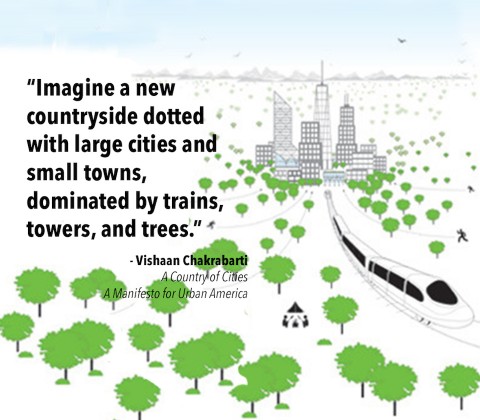
At IISC we often talk about three hugely important pieces of context for social change work these days:
- We are in the middle of a paradigm shift, from the Industrial Age into an age that doesn’t have a name yet
- By 2050, 70% of the world’s population will live in urban areas
- In 2042 the U.S. will become a majority people of color nation
In this context, as a nation and a globe we are choosing to face or ignore urgent questions about climate change, racism, wealth distribution, violence (the types we condone, penalize, and ignore), and the quality of life that we are willing or unwilling to insist upon for every human being on this planet. It’s quite overwhelming…
Read More
March 25, 2014

This post is a response to yesterday’s post by Cynthia Silva Parker.
I was truly moved by Cynthia’s heartfelt exploration of anger and its role in our quest for justice. I get angry. I get angry in some healthy ways, and in many unhealthy ways.
Read More
March 24, 2014

We talk a lot at IISC about the power of love as a force for social change. But what about anger? I’ve seen a couple of recent examples where anger—cleanly and clearly expressed—created space for breakthroughs that I don’t think would have happened otherwise. Anger helped people in power to “get it” about something that they had not otherwise “gotten” when the volume and heat were lower.
Read More
March 17, 2014

What do IISC’s lenses of networks, power and love have to do with breastfeeding? Turns out, a lot! I had the privilege of facilitating the second annual First Food Forum: Every Child, Every Mother, Every One of Us, sponsored by the W.K. Kellogg Foundation for its first food grantees. Participants connected the dots between networks, power and love in powerful ways. Love is probably the easiest connection to make.
Read More
February 26, 2014
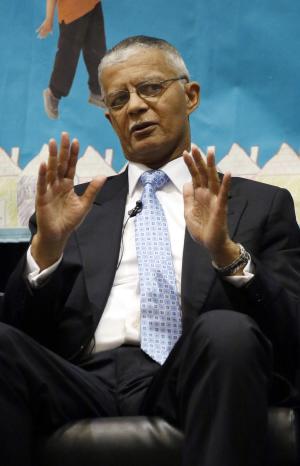 We are deeply saddened by the news that Mayor Chokwe Lumumba of Jackson, Mississippi, was found dead yesterday.
We are deeply saddened by the news that Mayor Chokwe Lumumba of Jackson, Mississippi, was found dead yesterday.
Lumumba, a founding member of Malcolm X Grassroots Movement and a widely respected human rights attorney, was in the initial stages of launching a sweeping set of economic reform initiatives, built on a foundation of broad-based civic participation in Jackson.
Read More
February 18, 2014

8/14/14 Update: Sadly the list of names in this post has grown in the past week with the deaths of Eric Barnes and Mike Brown. In both cases it appears that aggressive policing of minor offenses escalated, resulting in deaths that did not need to happen. #blacklivesmatter
I find the fact that we need a conversation called #BlackLivesMatter disturbing. But it’s a badly needed conversation and one that needs to catalyze effective action. It’s urgent that we create a context where it’s no longer “understandable” that someone could be afraid enough of an unarmed black person to justify killing him or her.
Read More
